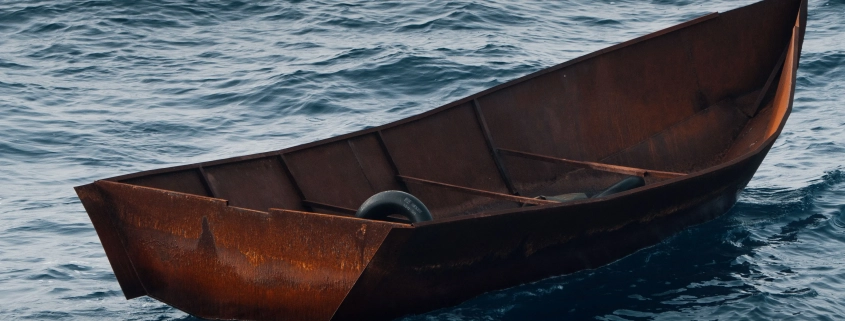Irini Mandate Extended with Serious Amendments
Yesterday, the German Bundestag talked about the Irini mandate. This mandate is reviewed at regular intervals. This time, however, a devastating change in wording has been introduced, which will now allow the German armed forces (Bundeswehr) to equip and train the so-called Libyan coast guard. In previous versions of the mandate, this had been suspended due to the lack of reliable partners in Libya.
In the current mandate, this fact no longer seems to matter. “The political situation in Libya remains marked by a stalled political transition process, conflicting political factions and increasingly divided institutions in the East and West.” Nevertheless, the new mandate text states: “The operation also supports relevant Libyan institutions responsible for law enforcement and search and rescue at sea, in building their capacities and conducting training in maritime law enforcement (…)”. What exactly these changes mean is not clearly communicated or further explained in the mandate.
The so-called Libyan coast guard regularly violates human rights and uses extreme violence against people fleeing by sea as well as against crews on rescue ships. In recent weeks alone, four rescue ships flying European flags and carrying numerous rescued individuals on board were directly fired upon by the so-called Libyan coast guard. Another dramatic incident occurred this week involving a wooden boat carrying 140 people fleeing across the sea. In that case, Libyan militias deliberately opened fire on the people onboard. One person is now in a coma with a severe gunshot wound and two others were seriously injured.
With the amendment to the Irini mandate, the German Bundeswehr would now be able to supply weapons for such attacks to the so-called Libyan coast guard and provide training to these militias for such maneuvers.While many European countries already support this actively, the German government had previously refrained from doing so. This amendment marks a new milestone in the brutal migration policy of the current German government and makes the work of sea rescuers even more dangerous.
Anna di Bari, board member of Sea-Eye, warns: “When Europe releases funds, it actively contributes to financing human rights violations — now even with a blank check from Germany. People leave their homes because they have no other choice; they endure extreme hardship and deadly risks in the hope of a safe life. And now it seems Germany is choosing to support those who drag back people who are seeking protection and torture, rape and even kill them. The federal government must reveal its plans: Is it truly preparing to train those actors who shoot at people seeking protection? We will not allow more and more European tax money to flow into a border policy that disregards human dignity.”
The previous German government had taken a first step by halting training efforts, in order to ensure that this task would no longer be part of the mission across Europe. Sea-Eye demands full transparency of the current plans and an immediate end to any cooperation with Libyan militias.
What is the Irini Mandate?
The EUNAVFOR MED Irini operation is intended to ensure the enforcement of the arms embargo against Libya. However, the mandate also includes a number of additional tasks, such as enforcing measures against the illegal export of oil from Libya, monitoring and potentially dismantling illegal human trafficking activities at sea and now also supporting relevant institutions in Libya.

 Soizic Roux
Soizic Roux Anna Dütsch
Anna Dütsch